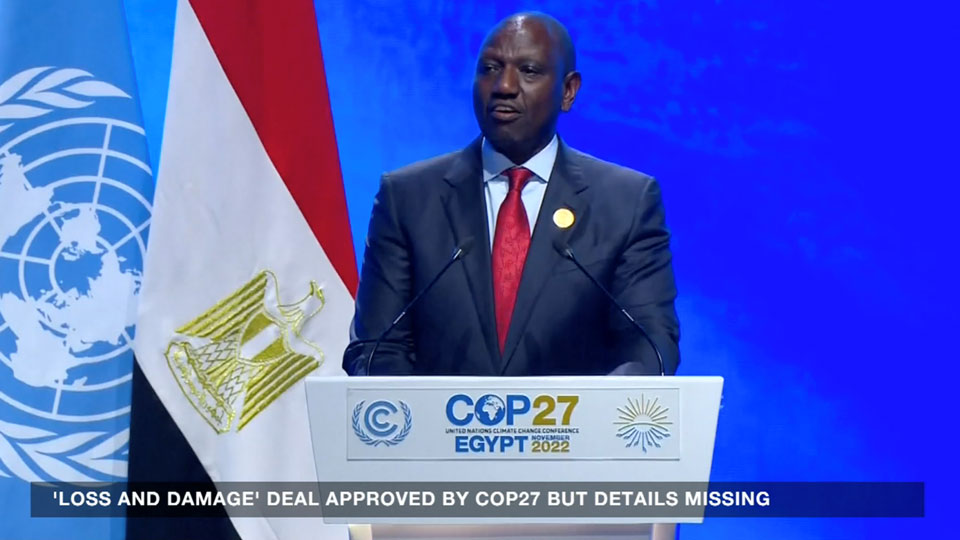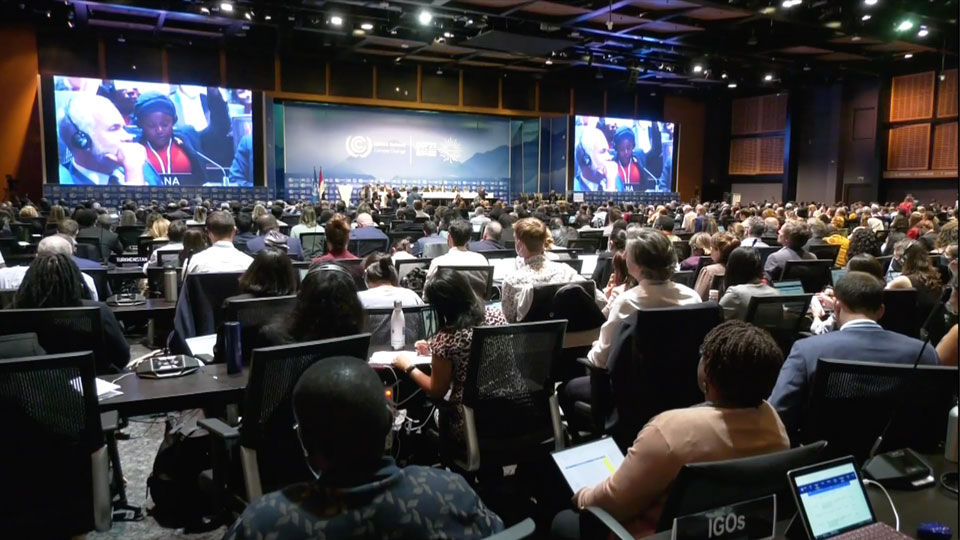Climate change is increasing the frequency and intensity of natural disasters. Europe was struck by extreme heatwaves in June and July. Historic flooding this summer submerged one-third of Pakistan. Hurricane Ian pummeled Florida in September. And many parts of Africa, including the Horn of Africa and Morocco, continue to experience some of the worst droughts in decades.
Developing countries say they have been suffering the greatest consequences from a global problem largely caused by industrialized nations. The loss and damage fund -- a long-standing demand of developing nations -- will provide financial assistance to the main victims of climate disasters.
Speaking on behalf of African leaders at COP27, Kenyan President William Ruto said, "Loss and damage is not an abstract topic of endless dialogue. It's our daily nightmare."

Wealthy nations drag their heels
The establishment of the fund was central to the conference. Wary of the financial burden, industrialized countries were initially opposed to the plan. Tough negotiations saw the meeting run two days beyond the scheduled ending of November 18.
Key concessions by industrialized countries finally paved the way for the deal's approval. It's the first of its kind under the UN framework and was broadly welcomed by the developing world.
"This journey has achieved its first positive milestone," said Pakistan's climate change minister Sherry Rehman. Lia Nicholson, a negotiator for Antigua and Barbuda, added, "This is the start of a new paradigm that truly accounts for the burdens of climate change."
Details must be ironed out
The agreement calls for multiple sources of funding, including from financial institutions. Takamura Yukari, a professor at the University of Tokyo's Institute for Future Initiatives, told NHK it's an opportunity that can't go to waste.
"The deal is historic, and the big issue today is how to provide financial and technical support most effectively," she says.
The finer details will be discussed at COP28 in UAE next year.
Scant progress on core problem
Despite the agreement on the loss and damage deal, the COP27 summit made little progress in addressing greenhouse gas emissions, the cause of climate change.

The meeting's closing statement repeats last year's call for limiting the global average temperature increase to 1.5 degrees Celsius above pre-industrial levels by 2030. But some emerging nations -- including China, the world's top greenhouse gas emitter -- have brushed that off as a mere "target for effort."
As it stands, the world is not doing enough. If the situation fails to improve, then the new loss and damage fund could soon be stretched to its breaking point.

